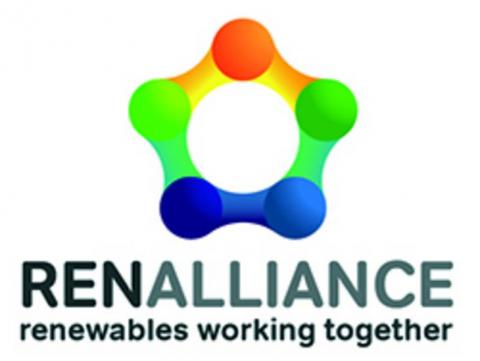Renewable energy technologies ready to deliver on the Paris Agreement at all levels of deployment. The REN Alliance, a coalition of five renewable energy associations, joined forces at COP22 in Marrakech to demonstrate how renewable technologies working together can meet energy needs at island, rural, city, national and regional levels.
Among the most significant challenges facing society today is the impacts that global climate change can have on our economies, livelihoods, and lifestyles. The COP21 Agreement coming out of Paris in 2015 calls for all countries to work together towards greenhouse gas reduction commitments that ultimately result in no more than 2 0C, and ideally 1.5 0C warming above preindustrial levels by the end of this century.
This is the goal that the Intergovernmental Panel on Climate Change (IPCC) has established to avoid catastrophic impacts from climate change. However, the current Intended Nationally Determined Contributions (INDC’s) that form a part of this agreement are an important yet insufficient step to be taken by national governments to achieve this goal. A decarbonized energy sector must be achieved within the next few decades in order to meet this climate challenge.
The renewable technologies represented by the REN-Alliance are ready to meet the challenges of the Paris accord, and are already in a position with cost effective and mature technologies to achieve a carbon-free energy system within the necessary time frame called for by the IPCC and as adopted in the Paris agreement to be achieved latest by the year 2050.
Consequently, the REN-Alliance is accelerating its efforts to promote how the renewable energy technologies represented by the member partners can all work together to contribute to the climate reduction goals set forth by the Paris Agreement.
Through the presentation of case studies and best practices being undertaken by localities, regions, and communities throughout the world, and the promotion of favorable policies, the REN-Alliance is demonstrating that renewables working together can result in a decarbonized energy systems based on a global 100% renewable energy well before the end of this century, leading to the mitigation of the major environmental challenge of our time.
The REN Alliance underlines that a renewable energy supply is not only good for the climate, but offers manifold economic and social benefits, for developing and for industrialized countries alike. Renewable energy technologies are today’s cheapest options when comparing new investment – this has been stated by independent organizations like IRENA. Hence the global transition to a renewable energy future is not any more a financial burden but will enhance economic growth and prosperity in addition to mitigation of climate change.
Stefan Gsänger, secretary general of the World Wind Energy Association, said: “Communities in rural areas especially can benefit tremendously from the global shift towards 100% renewable energy: They may not only cover their own energy needs from local renewable resources, but also become suppliers of urban areas, hence creating new income opportunities for themselves. This will boost rural areas in industrialized and in particular in the so-called developing countries.”
Dr David Renné, president of the International Solar Energy Society (ISES), said: “Renewables working together in island settings can achieve complete energy independence and security for these communities by eliminating the need for expensive imported diesel fuel.”
Remigijus Lapinskas, president of the World Bioenergy Association (WBA), said: “Bioenergy enables us to create jobs in rural areas, improve the ecological situation in the cities, strengthen the security of supply, national energy independence and could be developed in the regional level leading to cooperation in science, technology and business.”
Richard Taylor, chief executive of the International Hydropower association, said: “The information presented at today's event demonstrates the power of renewable technologies working together. Depending on the available renewable resources, we need to combine the positive characteristics of each technology to deliver robust and reliable systems, including renewable storage. Governments, investors and lenders need to take a systems approach to increase the rate of progress.”
Marietta Sander, executive director of the International Geothermal Association, said: “The regional geothermal development approach through the African Rift Geothermal Facility, the African Regional Geothermal Association and a regional technical assistance project through UNEP works really well in the East African countries.”
The International Renewable Energy Alliance, or REN-Alliance, was formed in 2004 during the first International Renewable Energy Conference in Bonn, Germany.
The REN-Alliance brings together five renewable industry organizations to promote the use of renewable energy technologies worldwide: the International Hydropower Association, the International Geothermal Association, the International Solar Energy Society, the World Bioenergy Association, and the World Wind Energy Association.
Find out more at www.ren-alliance.org.
The REN Alliance partners are:
- International Geothermal Association, IGA
- International Hydropower Association, IHA
- International Solar Energy Society, ISES
- World Bioenergy Association, WBA
- World Wind Energy Association, WWEA
Watch the live stream of the event here: https://www.youtube.com/watch?v=tOtzAvxX4Oo&index=118&list=PL-m2oy1bnLzocWRks4MGBmGKdcf8Nxuns
Watch ISES COP22 video interviews here: https://youtu.be/VO4PYKEUx_U
